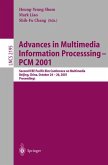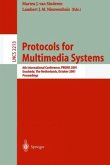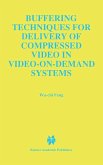Multimedia technologies are rapidly attracting more and more interest every day. The Internet as seen from the end user is one of the reasons for this phenomenon, but not the only one. Video on Demand is one of the buzzwords today, but its real availability to the general public is yet to come. Content providers - such as publishers, broadcasting companies, and audio/video production ?rms - must be able to archive and index their productions for later retrieval. This is a formidable task, even more so when the material to be sorted encompasses many di?erent types of several media and covers a time span of several years. In order for such a vast amount of data to be easily available, existing database design models and indexing methodologies have to be improved and re?ned. In addition, new techniques especially tailored to the various types of multimedia must be devised and evaluated. For archiving and trasmission, data compression is another issue that needs to be addressed. In many cases, it has been found that compression and indexing can be successfully integrated, since compressing the data by ?ltering out irrelevancy implies some degree of und- standing of the content structure.
Hinweis: Dieser Artikel kann nur an eine deutsche Lieferadresse ausgeliefert werden.
Hinweis: Dieser Artikel kann nur an eine deutsche Lieferadresse ausgeliefert werden.








